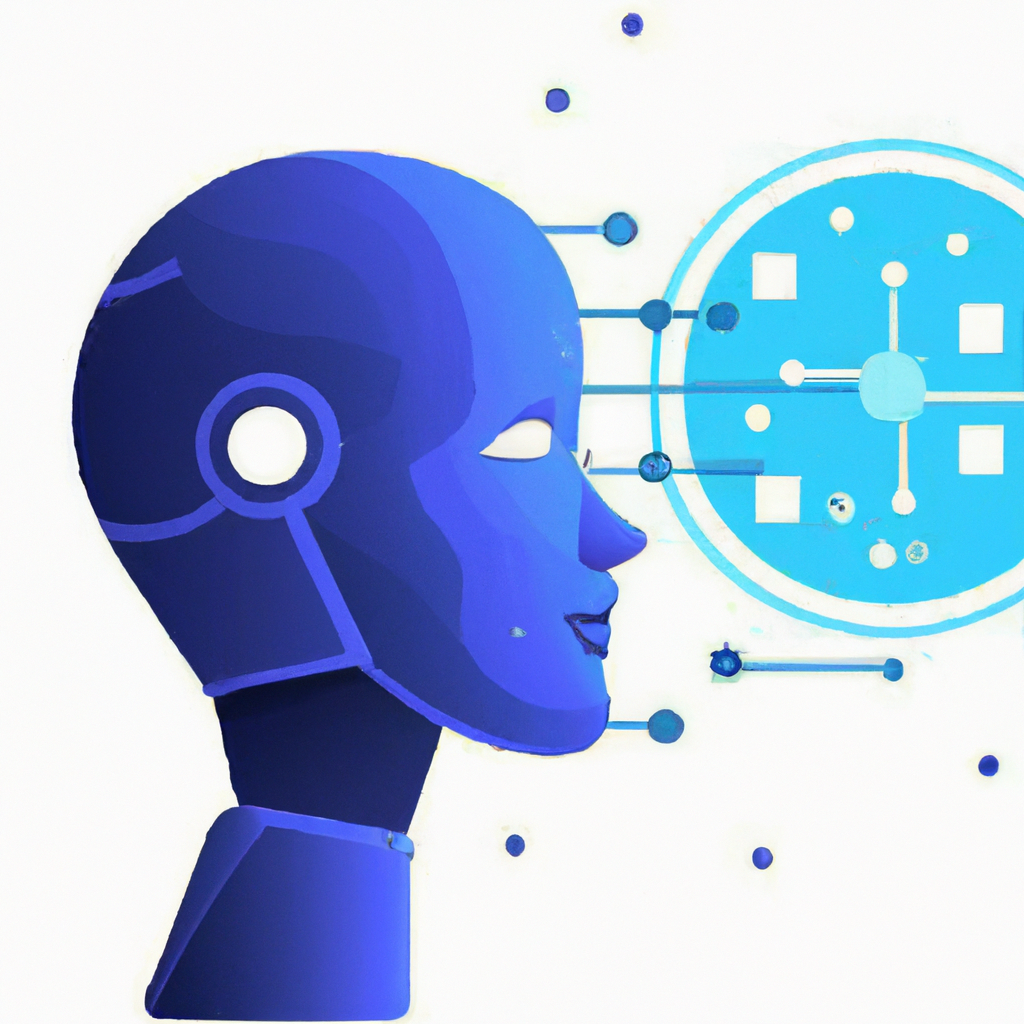Imagine having your very own personal assistant, available at your beck and call, ready to help with anything you need. From organizing your schedule to answering your burning questions, this AI assistant is the best in the business. With its advanced artificial intelligence capabilities and seamless integration with your devices, it’s like having your own smart and intuitive companion. Say goodbye to feeling overwhelmed and hello to efficiency and convenience. Get ready to meet the best AI assistant you’ve ever had the pleasure of working with.

Understanding AI Assistants
What is an AI Assistant?
An AI assistant, also known as a virtual assistant or intelligent personal assistant, is a software program or application that uses artificial intelligence technologies to perform tasks, provide information, and offer assistance to users. These assistants are designed to understand and respond to natural language commands and queries, making them user-friendly and accessible.
Brief History of AI Assistants
The concept of AI assistants dates back to the 1960s, but it wasn’t until the 1990s that they started to emerge in the consumer market. The first notable AI assistant was Apple’s Siri, introduced in 2011. This was followed by Google Assistant in 2016, Amazon Alexa in 2014, and Microsoft’s Cortana in 2015. Since then, the capabilities and popularity of AI assistants have rapidly advanced, becoming an integral part of everyday life for many individuals.
How Do AI Assistants Work?
AI assistants rely on various technologies, such as natural language processing, machine learning, and voice recognition, to interpret and understand user commands and queries. They use vast amounts of data and algorithms to analyze and provide relevant responses or perform requested tasks. These assistants can operate on a wide range of devices, including smartphones, smart speakers, and personal computers.
Today’s AI Assistants Scope
Modern AI assistants have evolved to offer a wide scope of functionalities. They can perform basic tasks such as setting reminders, sending messages, and making phone calls. However, their capabilities extend far beyond these rudimentary functions. AI assistants can now control smart home devices, provide weather updates, offer recommendations, play music, give directions, and even assist with shopping. As technology continues to advance, the potential uses for AI assistants are virtually limitless.
Advantages of Using AI Assistants
Boosting Productivity
AI assistants are designed to streamline tasks and save time, significantly boosting productivity. These assistants can schedule appointments, set reminders, manage calendars, and provide timely notifications. By offloading these administrative duties, users can focus on more important or challenging tasks, increasing their overall efficiency.
Improved Accessibility
AI assistants have improved accessibility for individuals who may have difficulty navigating traditional interfaces. For those with disabilities or mobility issues, AI assistants provide a seamless and convenient means of interacting with digital devices. Through voice commands, users can access information, perform tasks, and control various aspects of their environment, promoting inclusivity and equal access to technology.
Personalized User Experience
One of the key advantages of AI assistants is their ability to provide a highly personalized user experience. These assistants learn from user interactions, preferences, and behavior patterns to tailor their responses and recommendations. Whether it’s suggesting personalized news articles, providing relevant product recommendations, or adjusting smart home settings based on user routines, AI assistants strive to deliver a personalized and tailored experience.
Reducing Tasks and Effort
AI assistants excel at automating repetitive tasks and reducing the overall effort required from users. From answering common questions to doing online research, AI assistants can handle various information-based queries with ease. By automating these tasks, users can save time and effort, allowing them to focus on more meaningful or enjoyable activities.
Enhanced Decision Making
AI assistants offer valuable insights and recommendations that can aid in decision-making processes. Through advanced data analysis and machine learning algorithms, these assistants can provide relevant information based on user inquiries or contextual cues. Whether it’s providing restaurant recommendations, offering travel suggestions, or helping with investment decisions, AI assistants can assist users in making more informed choices.
Choosing the Best AI Assistant
Understanding the User’s Needs
When choosing an AI assistant, it’s important to consider the specific needs and requirements of the user. Different assistants excel in various areas, so identifying the intended use cases and desired functionalities is crucial. For example, someone who heavily relies on smart home automation may prioritize an assistant with robust integration capabilities, while another user may value an assistant with strong language support for multilingual communication.
Analyzing Various AI Assistants
To determine the best AI assistant, it’s essential to analyze and compare the offerings of different providers. Each AI assistant has its own unique features, strengths, and weaknesses. By comparing aspects such as natural language understanding, speed of response, accuracy of information, and compatibility with other devices, users can make an informed decision.
Cost and Affordability
The cost of an AI assistant can vary depending on the provider and the specific device or platform it operates on. Some AI assistants, like Apple’s Siri and Google Assistant, come pre-installed on devices, while others, like Amazon Alexa, are available for purchase separately. Additionally, some assistants may offer premium or subscription-based services that unlock enhanced features. Consider the budget and cost effectiveness when selecting an AI assistant.
Assessing Compatibility and Integration
Compatibility and integration with existing devices and services is crucial when selecting an AI assistant. Users should ensure that the assistant seamlessly integrates with their preferred platforms, such as smartphones, smart speakers, or smart home devices. Additionally, checking for compatibility with popular third-party services and apps can help maximize the assistant’s functionality and integration into daily routines.
Overview of Popular AI Assistants
Amazon Alexa
Amazon Alexa is a voice-controlled AI assistant developed by Amazon. It is primarily known for its integration with the Amazon Echo smart speaker range but is also available on smartphones and other third-party devices. Alexa supports a wide range of skills and can perform tasks such as playing music, controlling smart home devices, providing weather updates, and answering general knowledge questions.
Google Assistant
Developed by Google, Google Assistant is available on various platforms, including smartphones, smart speakers, and smart displays. Google Assistant is known for its advanced natural language processing and search capabilities. Users can interact with Google Assistant through voice commands or text-based queries and perform tasks such as making phone calls, sending messages, setting reminders, playing media, and getting personalized recommendations.
Apple’s Siri
Siri, developed by Apple, is an AI assistant exclusively available on Apple devices, including iPhones, iPads, Macs, and the HomePod smart speaker. Siri is deeply integrated into the Apple ecosystem and can perform tasks such as making calls, sending texts, setting alarms, controlling smart home devices, and answering questions. Siri also benefits from seamless synchronization with other Apple services and apps.
Microsoft’s Cortana
Cortana, developed by Microsoft, is available on Windows devices, including PCs, laptops, and smartphones. It offers a range of functionalities, including setting reminders, managing calendars, providing contextual insights, and performing web searches. Cortana also supports third-party integrations and can interact with various Microsoft services and applications.

Analyzing Amazon Alexa
Features and Functions
Amazon Alexa offers an extensive set of features and functions. It supports a vast library of skills developed by third-party developers, allowing users to personalize their experience. Alexa can perform tasks such as controlling smart home devices, playing music from popular streaming services, setting reminders, providing weather information, and answering general knowledge questions.
Pros and Cons
Some advantages of using Amazon Alexa include its robust integration with smart home devices, ease of use, and wide range of available skills. Alexa’s voice recognition and understanding capabilities are generally accurate, offering a smooth user experience. However, some users have raised privacy concerns regarding Alexa’s always-listening functionality, and occasional issues with misunderstood commands have been reported.
User Feedback
Users generally appreciate Amazon Alexa for its convenience and versatility. The vast collection of skills available for Alexa allows users to customize their experience and tailor the assistant to their specific needs. However, some users have mentioned occasional difficulties in understanding and accurately executing complex commands or queries.
Best Use Cases
Amazon Alexa excels in smart home automation, making it an ideal assistant for individuals with an extensive ecosystem of smart home devices. Additionally, its music streaming capabilities and integration with popular services like Spotify and Amazon Music make it a great choice for music enthusiasts. Alexa’s ability to provide quick access to weather updates and answer general knowledge questions also makes it useful in daily routines.
Analyzing Google Assistant
Features and Functions
Google Assistant boasts a wide range of features and functions. It leverages Google’s advanced search capabilities, allowing it to provide accurate and up-to-date information. Users can interact with Google Assistant through voice commands or text-based queries. It can perform tasks such as sending messages, making calls, setting reminders, playing media from various sources, and providing personalized recommendations based on user preferences.
Pros and Cons
Google Assistant’s strengths lie in its exceptional language understanding and search capabilities. It can comprehend complex queries and provide relevant answers quickly and accurately. Google Assistant’s integration with other Google services and apps also adds to its versatility. However, some users have expressed privacy concerns regarding the data collected by Google Assistant.
User Feedback
Users appreciate Google Assistant for its accurate responses, vast knowledge base, and ability to handle various tasks seamlessly. The integration with Google’s ecosystem, including popular services like Google Maps and Google Calendar, enhances the user experience. However, there have been occasional reports of misunderstandings or misinterpretations of user commands, affecting the assistant’s overall reliability.
Best Use Cases
Google Assistant shines when it comes to tasks that require information retrieval, such as searching the web, getting directions, and obtaining real-time information like stock market updates or flight status. Its integration with Google services also makes it valuable for individuals who heavily rely on Google’s suite of apps for productivity and organization.
Analyzing Apple’s Siri
Features and Functions
Siri, Apple’s AI assistant, offers a range of features and functions designed to enhance the Apple user experience. It can perform tasks such as making phone calls, sending texts, setting alarms, managing calendars, controlling smart home devices, and providing answers to general questions. Siri benefits from deep integration with various Apple services and apps, such as Apple Music and Apple Maps.
Pros and Cons
Siri’s strengths lie in its seamless integration within the Apple ecosystem. Its ability to understand contextual queries and execute device-specific actions sets it apart. Siri’s user-friendly interface and intuitive commands make it accessible to users of all ages. However, some users have highlighted occasional issues with Siri’s voice recognition accuracy and limitations in understanding complex queries.
User Feedback
Users appreciate Siri’s ability to perform various tasks effortlessly, particularly when it comes to controlling Apple devices and accessing Apple services. The hands-free operation and voice-controlled capabilities make Siri attractive to individuals seeking a convenient and accessible assistant. However, users have reported instances where Siri misunderstood commands or failed to provide satisfactory responses.
Best Use Cases
Siri is best suited for individuals heavily invested in the Apple ecosystem, relying on Apple devices and services for their daily activities. It excels at tasks such as making calls, sending texts, managing calendars, and playing music from Apple Music. Siri’s native integration with Apple HomeKit also makes it a valuable assistant for controlling smart home devices.
Analyzing Microsoft’s Cortana
Features and Functions
Cortana, developed by Microsoft, offers a wide range of features and functions designed to enhance productivity and provide personalized experiences. It can perform tasks such as setting reminders, managing calendars, performing web searches, answering general knowledge questions, and providing contextual insights based on individual preferences and interactions.
Pros and Cons
Cortana is lauded for its integration with Microsoft services, including Office 365, Outlook, and Windows devices. Its productivity-focused features, such as reminders and calendar management, make it a valuable assistant for business professionals. However, Cortana’s availability is limited to Windows devices, and some users have reported occasional bugs or inaccuracies in its responses.
User Feedback
Users appreciate Cortana’s ability to synchronize across Microsoft services and devices, allowing for a seamless experience within the Windows ecosystem. Its proactive nature, providing relevant suggestions and insights based on user habits, has been well-received. However, there have been reports of occasional delays or inconsistencies in Cortana’s responses.
Best Use Cases
Cortana shines when it comes to productivity-related tasks and interactions within the Microsoft ecosystem. Its integration with Office applications, such as Outlook and Microsoft Teams, makes it valuable for professionals seeking assistance with scheduling, reminders, and task management. Cortana’s skills in performing web searches and answering general knowledge questions also contribute to its utility in various use cases.
Comparing the Top AI Assistants
Usability
In terms of usability, all the top AI assistants have made significant strides in offering user-friendly interfaces and intuitive interactions. Each assistant has its own distinct style, with Amazon Alexa and Google Assistant excelling in voice recognition and natural language understanding. Apple’s Siri benefits from its seamless integration with Apple devices and services, making it highly accessible for Apple users. Meanwhile, Microsoft’s Cortana offers a robust user experience within the Windows ecosystem.
Interoperability
When it comes to interoperability, Amazon Alexa stands out for its extensive integration with a wide range of smart home devices and third-party services. Google Assistant also offers excellent interoperability, leveraging its integration with popular Google services and apps. Apple’s Siri excels in compatibility within the Apple ecosystem, while Cortana leverages its integration with Microsoft services and applications.
Capability and Performance
In terms of capabilities and performance, Google Assistant stands out for its exceptional natural language understanding, accurate search results, and vast knowledge base. Amazon Alexa excels in smart home automation, with a vast library of skills to enhance its functionality. Siri’s strength lies in its seamless device integration and context-specific actions, while Cortana offers productivity-focused features within the Windows environment.
Personalization
Google Assistant shines when it comes to personalization, leveraging Google’s vast user data and machine learning algorithms to offer tailored recommendations and insights. Siri also offers a personalized user experience by learning from user interactions and preferences, while Cortana provides contextual insights based on user habits. Amazon Alexa also supports personalization through the use of customizable skills.
Language Support
In terms of language support, Google Assistant leads the pack with support for multiple languages and dialects. Siri offers excellent language support but is primarily focused on the languages in regions where Apple products are popular. Amazon Alexa and Cortana have limited language support, mainly focused on English and select languages.
The Future of AI Assistants
Predicted Developments
The future of AI assistants holds exciting possibilities. Advancements in natural language processing and machine learning techniques are expected to enhance the accuracy and contextual understanding of AI assistants. Additionally, improvements in voice recognition technology will make interactions more seamless and natural. AI assistants are also likely to become more proactive, anticipating user needs and providing proactive recommendations.
Enhanced AI Involvement in Everyday Life
AI assistants are predicted to become more integrated into everyday life, present in a wider array of devices and services. They will play a significant role in smart home automation, healthcare applications, customer service interactions, and more. As AI technology improves, AI assistants may even become companions, providing emotional support and engaging in lifelike conversations.
AI and Privacy Concerns
As AI assistants evolve and become more integrated into our lives, privacy concerns surrounding data collection and usage will become more important. Striking a balance between the convenience and personalization AI assistants offer and protecting user privacy will be a key challenge for developers and policymakers. Implementing robust data protection measures and providing transparent user consent mechanisms will be crucial.
Role of AI in Different Industries
AI assistants are already transforming various industries, and this trend is expected to continue. In healthcare, AI assistants could aid in remote patient monitoring and personalized health recommendations. In education, they could provide personalized learning experiences and adaptive feedback. Furthermore, AI assistants have promising applications in e-commerce, banking, entertainment, and many other sectors.
In conclusion, AI assistants have come a long way since their inception and are now an integral part of many people’s lives. They offer a wide range of advantages, including improved productivity, accessibility, personalized user experiences, task automation, and enhanced decision-making capabilities. Selecting the right AI assistant involves understanding the user’s needs, analyzing various options, considering cost and affordability, and assessing compatibility and integration. The top AI assistants, including Amazon Alexa, Google Assistant, Apple’s Siri, and Microsoft’s Cortana, each have their own strengths and weaknesses. Consideration should be given to factors such as usability, interoperability, capability, personalization, and language support when comparing assistants. The future of AI assistants holds exciting possibilities, with predicted developments in accuracy, contextual understanding, proactive capabilities, and increased integration into everyday life. However, ensuring user privacy and addressing ethical concerns will be essential as AI assistants continue to evolve and play a more prominent role in various industries.



